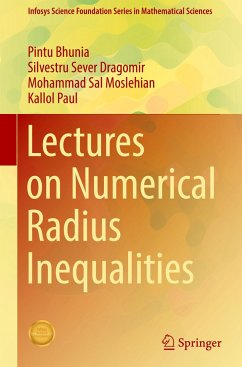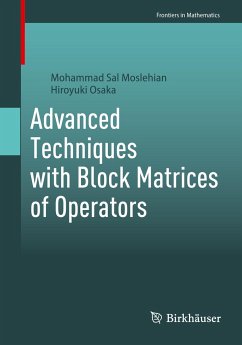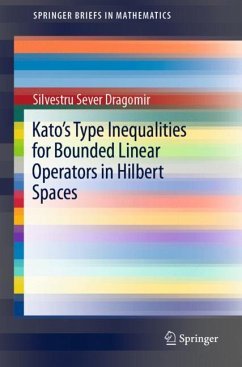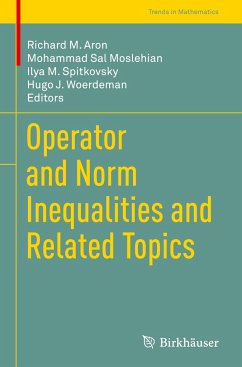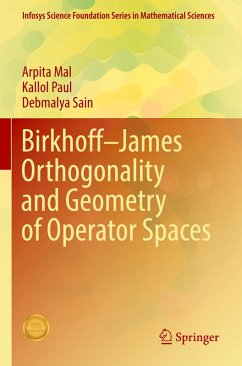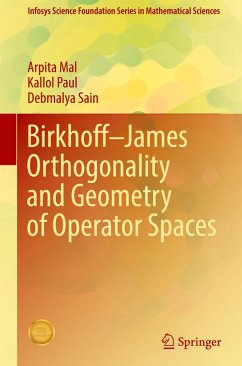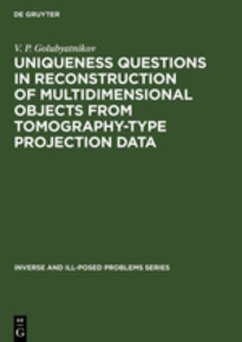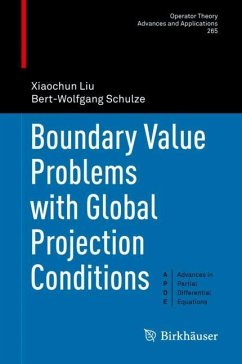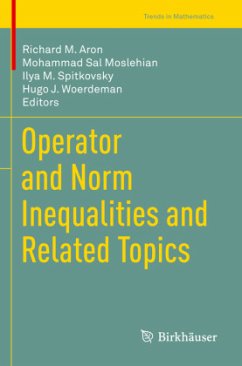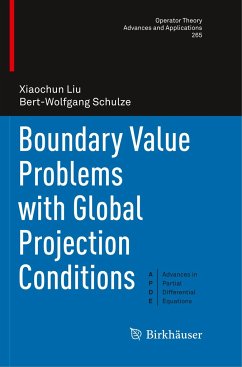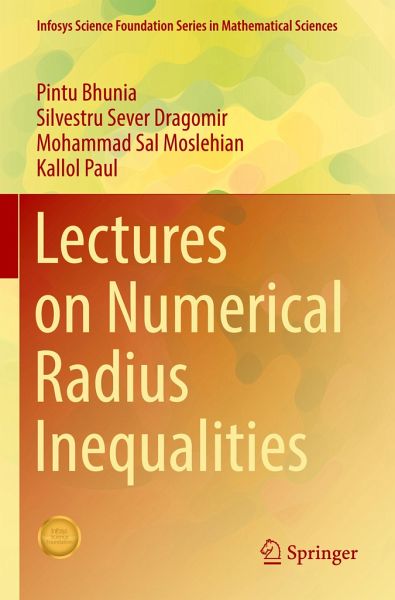
Lectures on Numerical Radius Inequalities
Versandkostenfrei!
Versandfertig in 1-2 Wochen
107,99 €
inkl. MwSt.
Weitere Ausgaben:

PAYBACK Punkte
54 °P sammeln!
This book is a self-contained advanced monograph on inequalities involving the numerical radius of bounded linear operators acting on complex Hilbert spaces. The study of numerical range and numerical radius has a long and distinguished history starting from the Rayleigh quotients used in the 19th century to nowadays applications in quantum information theory and quantum computing.This monograph is intended for use by both researchers and graduate students of mathematics, physics, and engineering who have a basic background in functional analysis and operator theory. The book provides several ...
This book is a self-contained advanced monograph on inequalities involving the numerical radius of bounded linear operators acting on complex Hilbert spaces. The study of numerical range and numerical radius has a long and distinguished history starting from the Rayleigh quotients used in the 19th century to nowadays applications in quantum information theory and quantum computing.
This monograph is intended for use by both researchers and graduate students of mathematics, physics, and engineering who have a basic background in functional analysis and operator theory. The book provides several challenging problems and detailed arguments for the majority of the results. Each chapter ends with some notes about historical views or further extensions of the topics. It contains a bibliography of about 180 items, so it can be used as a reference book including many classical and modern numerical radius inequalities.
This monograph is intended for use by both researchers and graduate students of mathematics, physics, and engineering who have a basic background in functional analysis and operator theory. The book provides several challenging problems and detailed arguments for the majority of the results. Each chapter ends with some notes about historical views or further extensions of the topics. It contains a bibliography of about 180 items, so it can be used as a reference book including many classical and modern numerical radius inequalities.





